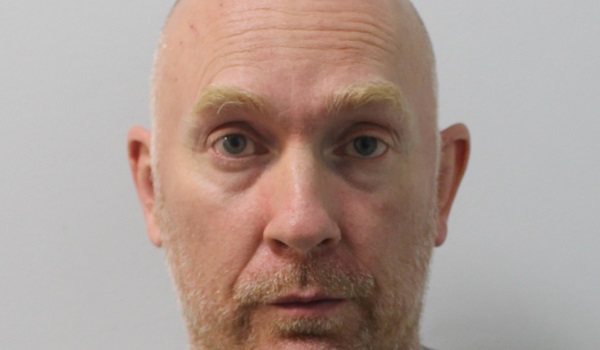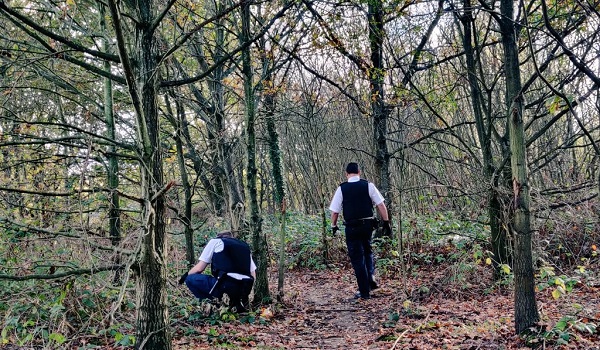Proactive policing sees drug-related crimes rise during coronavirus lockdown
Dug crime rose by up to 44 per cent during the coronavirus lockdown in England and Wales compared with the same period last year, official figures show.
According to the Office for National Statistics (ONS), drug offences recorded by police rose by 22 per cent in April to 16,570 and 44 per cent in May to 20,687. This is compared with 13,535 and 14,343 for the respective months in 2019.
The ONS report, published on Wednesday (August 26), put this down to “proactive police activity in pursuing these crimes during lockdown”.
It said the rises were driven largely by drugs possession offences, with “early indications” suggesting this was “particularly evident in London” where the Metropolitan Police Service had increased the number of drugs-related stop and searches it was carrying out during that time.
Meanwhile, police-recorded offences for violence against a person rose by 13 per cent in May (133,864) compared to April (118,369), representing the large volume increase. This resulted in figures similar to pre-lockdown levels when 135,554 offences were recorded in February.
Overall, police-recorded crime during lockdown was 25 per cent lower in April (354,334) and 20 per cent lower in May (398,049) compared with the same period in 2019 (474,513 and 496,104 respectively).
It also fell five per cent in March (442,816) compared with February (464,837), the report said.
In particular, reports of theft fell in April and May to “almost half the level recorded” during those months in the previous year.
There were 80,789 theft offences recorded by police in April and 86,414 in May, compared to 153,663 and 157,215 respectively in 2019.
April is the only month where full UK lockdown measures were in place throughout, during which time the police recorded their lowest number of crimes in England and Wales across all months in the year to May.
Reports of crime rose again as lockdown restrictions began to ease.
Although there was a nine per cent fall in public order offences between March and April (from 33,914 to 30,856), this rose by 23 per cent between April and May to 37,881, one of its highest monthly levels for the 12-month period, the ONS said.
The report added: “These changes are likely to reflect the introduction and subsequent easing of lockdown restrictions across England and Wales, as well as seasonal variation within these offences.”
The figures do not include Greater Manchester Police, which is still unable to provide data due to ongoing problems with a new computer system.
Billy Gazard, from the ONS Centre for Crime and Justice, said: “There was a significant fall in crime at the height of the coronavirus pandemic across England and Wales.
“This was driven by reductions in theft offences, particularly domestic burglary and theft of personal property. As this period coincided with the majority of people spending long periods at home during lockdown, it is not unexpected.”
He said the “exception was police recording of drug offences, which increased through April and May”, adding: “This reflects proactive police activity as overall crime levels reduced.”
The report gives the first official indication of some police-recorded crime figures since the pandemic took hold in the UK.
But its findings are limited due to the difficulties in gathering statistics posed by the circumstances caused by the pandemic and because some figures are not yet available.
For example, police reports of domestic abuse, knife and firearms crimes are recorded quarterly, so official figures indicating the prevalence of these crimes during lockdown are yet to be made public.
The Police Federation of England and Wales (PFEW) warned that the public must not be lulled into a false sense of security by the huge reduction in the rate of recorded crime during the lockdown period.
Reacting to the news PFEW national vice-chair Ché Donald said: “Overall the figures appear very positive, but we must take into account businesses were shut and members of the public were largely at home for a lengthy period during lockdown. As such, shoplifting offences and other acquisitive crimes were reduced as a result, so it is only common sense that crime is down.
“We must not be lulled into a false sense of security, as the figures will inevitably rise again. The answer to this is that we still need more officers on the streets in order to drive crime down in the longer-term and to keep the public safe. The much-promised government uplift of police officers will assist with this, but it is yet to be felt by my colleagues and the public.”
Mr Donald was highly encouraged by the finding that 91 per cent of adults who responded to the telephone-operated Crime Survey for England and Wales were satisfied with their local police officers.
He added: “We have all read the recent negative media perceptions of policing, so this overwhelming vote of confidence from the public will be appreciated by our members. This reflects the amazing work done by policing during the pandemic and the respect in which they are clearly held by the majority of the public.”







